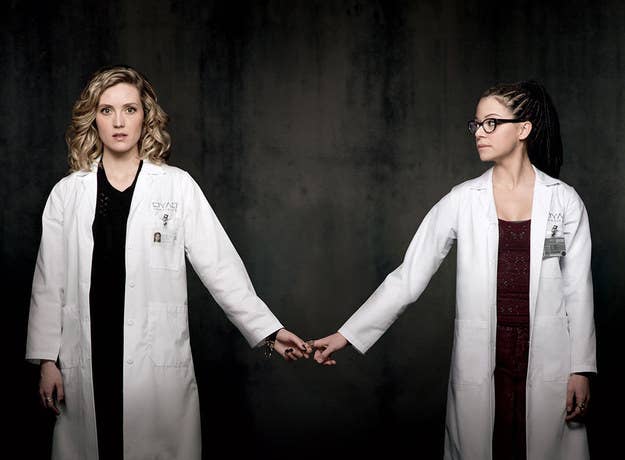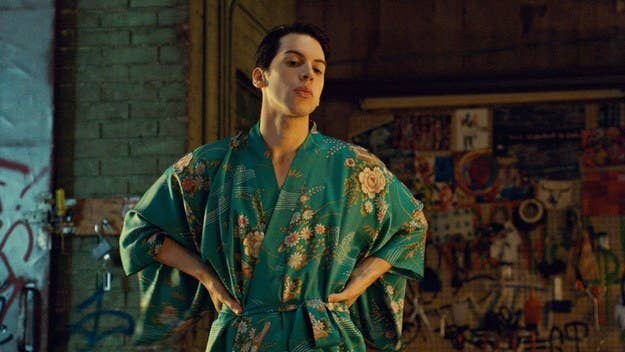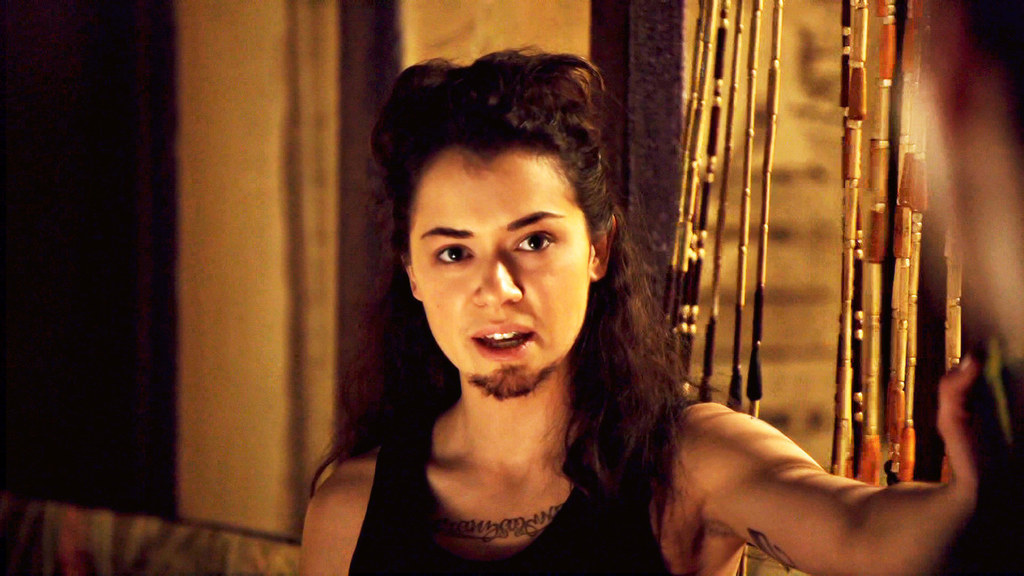
Since its premiere in 2013, Orphan Black has always been pretty queer.
And its stars have celebrated that. Two years ago, Jordan Gavaris, who plays the exuberantly gay Felix on the sci-fi clone thriller, was applauded for defending the character's flamboyance. "You cannot collectively as a society decide that you are only going to represent one part of a minority," he said. Tatiana Maslany, who plays all the female clones on the series, said, "We sort of embrace the idea of every human having the potential to be anything, and I think that opens the door for all kinds of dialogue about sexuality and about gender."
But though three of the people behind Orphan Black — science adviser Cosima Herter and showrunners John Fawcett and Graeme Manson — have thought about their LGBT characters consciously (they are serious about representing diversity, they all said in phone interviews with BuzzFeed News), they see diversity as quotidian, in a way. The key characters Cosima (played by Maslany and named after Herter), Felix, Delphine (Évelyne Brochu), and Tony (also Maslany) are all queer, and the writers don't mean much by it.

It only stands out because they've resisted television tropes — "a loving atomized family that has a son and a daughter and a dog," Herter gave as an example. In fact, their show looks more like the real world than its painstakingly heterosexual TV counterparts. "It's less spectacular than it is actually a mundane fact of life," Herter said.
The fictional Cosima says early on in Orphan Black that her sexuality is not the most interesting thing about her. She and the other characters represent a spectrum of visible queerness, from the almost straight Delphine to the trans Tony to the flamingly gay Felix. As Herter put it, "whether you are an effectively functioning reproductive machine" is not a question the show concerns itself with.
Biology, Herter said, has always been used for political ends, to regulate "what's a good body and what's a bad body" — science is far from neutral. For example, she continued, it has been proven by science that women are inferior to men. And once it's established through science that female bodies are biologically inferior to male bodies, "we can legitimize how we police them," she said. It's happened with women, and it's happened with queer people. (See any discussion of a "gay gene.")
But Cosima and Delphine, in particular, are characters who complicate the "born this way" biological narrative that's popularly used to justify queer existence: Cosima, though she's genetically identical to her "sisters," is the one lesbian clone (that we know of), while Delphine identifies as straight, until she falls in love with Cosima.
"I can think of three examples in my life that have been like that, that just wanted to be with the right person," Fawcett said. "It's not about questioning your sexuality or not questioning your sexuality — it's about finding your person."

"Yes, you can be born like that," Manson said. But, he added, "All of these things come together to shape your sexuality, and it's vastly complicated, and why not allow it to be slightly mysterious?"
Cosima, trying to move on from Delphine, starts dating in the May 16 episode of Orphan Black — leaning into her role as one of the relatively few lesbian characters on cable (GLAAD reported that nearly half of the announced LGBT characters on cable in the 2014–2015 season were gay men). "Within the fact that we're trying to tell a paranoid thriller, we're trying to show little pieces of humanity," Fawcett said. "But we're not trying to make any sweeping statements."
Fawcett wouldn't specify when Tony, the trans clone, will be back on the BBC America drama, currently in its third season. "We have a plan for Tony" was all he would say of the bearded rapscallion: "Tony is important to us." Not because he's trans, though: Because he's a complex character who resists pigeonholing, among other complex characters who resist pigeonholing.
In a sense, this is what Orphan Black is trying to illustrate: People are just people, and some of those people are queer.
